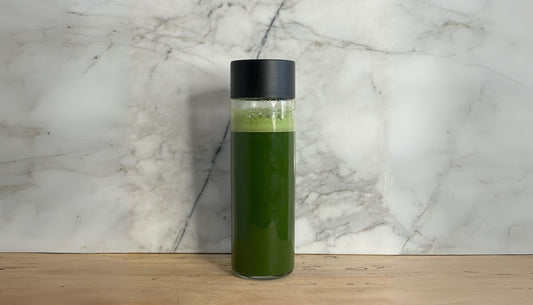Extensive research, including a detailed study published in BMJ Open, indicates that the perceived benefits of multivitamins are largely attributable to placebo effects.
The mere expectation of improvement can influence perception, rather than any physiological changes caused by the supplement itself and this is likely the case with AG1. Read the study here.
AG1's claims of better energy are unsubstantiated by rigorous clinical testing and validation and likely caused by placebo.
Benefits for the gut microbiota of AG1 are similar compared to eating produce from your local grocery.
Despite its array of ingredients, AG1 does not contain clinically effective doses of any of the adaptogens, nootropics, or superfoods it advertises.
Investing in a balanced diet should be prioritized over expensive and scientifically dubious supplements like AG1.
All the nutrients boasted by Athletic Greens can also be found in a standard multivitamin, which often costs ten times less.
Ultimately, while consumers might feel better after using supplements like AG1, these improvements are not any type of clinical performance enhancement. Just like regular multi-vitamins, this discrepancy strongly suggests that any perceived benefits are likely due to psychological effects like the placebo response rather than any substantive changes afforded by the supplements themselves. This calls into question the value of investing in products like AG1 when more effective, more economical, and evidence-based options are readily available.
Matcha is a single ingredient alternative to AG1, that has better clinical evidence regarding its health benefits.
Matcha, a finely ground powder made from specially grown and processed green tea leaves, presents a compelling alternative to supplements like AG1, backed by better clinical evidence regarding its health benefits. Unlike many greens supplements whose effects are often attributed to placebo responses, matcha has been extensively studied and shown to enhance mental alertness and metabolic rate, thanks to its high concentration of antioxidants, particularly EGCG (epigallocatechin gallate), and a balanced caffeine content. These components not only boost energy levels but also improve cognitive function and promote overall well-being. Additionally, matcha contains L-theanine, an amino acid that promotes relaxation without drowsiness, making it a superior choice for sustained energy and focus throughout the day. For those looking for a natural boost backed by solid research, matcha offers a proven, healthful option.
SHOP MATCHA
You don't need to take our word for it. Here is a small sample of studies showing the benefits of Matcha green tea.
Health Benefits and Chemical Composition of Matcha Green Tea: A Review
Matcha green tea beverage moderates fatigue and supports resistance training-induced adaptation
Matcha Green Tea Drinks Enhance Fat Oxidation During Brisk Walking in Females.
Anti-inflammatory Action of Green Tea.
Determination of catechins in matcha green tea by micellar electrokinetic chromatography.






